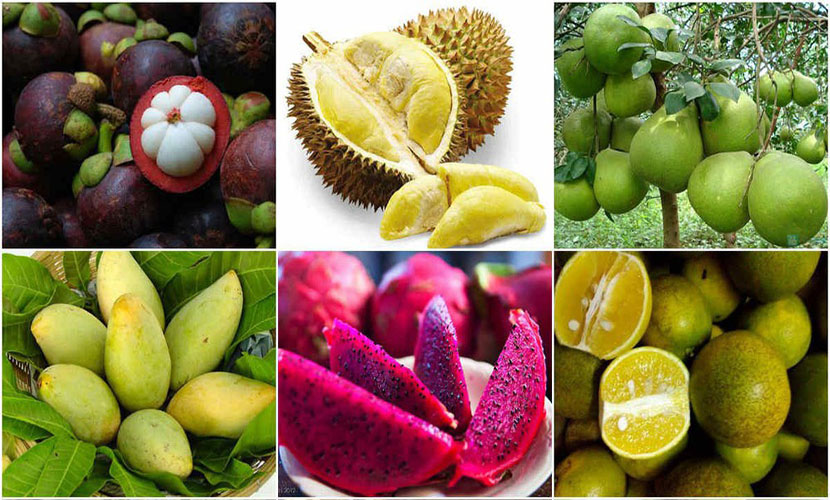
Thailand has been a major global agricultural exporter and once a model for Vietnam to learn from in agriculture. However, Thailand now has a high demand for importing agricultural products from Vietnam.
According to the Ministry of Industry and Trade, Thailand is a potential market worth billions of US dollars for agricultural products from Vietnam. It also presents an opportunity for many agricultural exporters to gain market share and make their mark.
Mr. Thanh, an entrepreneur specializing in sourcing fruits and vegetables for export to Thailand, shared the story of his “reverse path” in choosing Thailand as his company’s main export market.
“Exporting Vietnamese fruits and vegetables to China, the US, and South Korea is relatively straightforward. However, entering the Thai market initially met with hesitation due to tough competition,” Mr. Thanh recalled.

Agricultural products from Vietnam
“But once we started, we realized that Thai consumers actually favor agricultural products from Vietnam. Now, we export around ten containers per month, including longan, lychee, and durian, to this market,” Mr. Thanh said.
Mr. Nguyen, General Secretary of the Vietnam Fruit and Vegetable Association, also acknowledged that Thai consumers are showing a strong appetite for Vietnamese longan, lychee, and durian this year.
He noted that in the first eight months of 2024, Thailand spent nearly $80 million importing Vietnamese durian, an increase of over 95% compared to the same period in 2023.
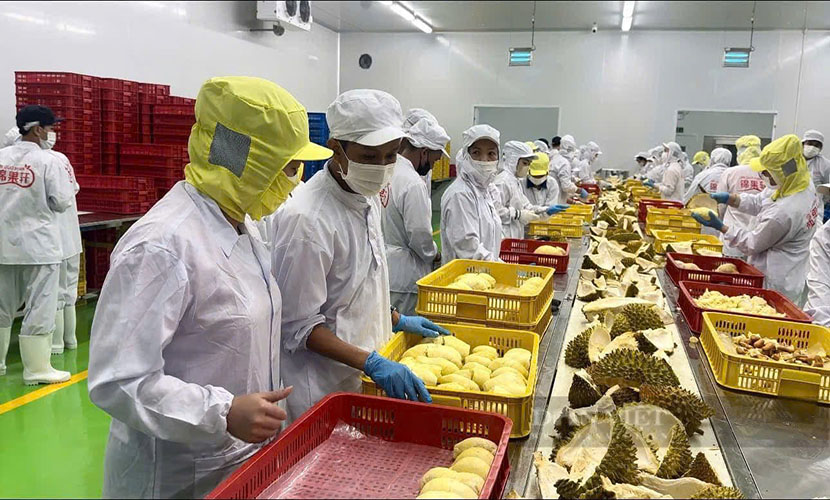
Vietnamese durian
“The demand for frozen durian from Vietnam has surged significantly, leading to a sharp increase in export volume,” Mr. Nguyen said.
“Vietnam can supply durian year-round, while Thailand has only about four months of harvest each year. Many businesses have told me that Thai consumers enjoy Vietnamese durian because of its unique, rich flavor that’s hard to mistake,” Mr. Nguyen added.
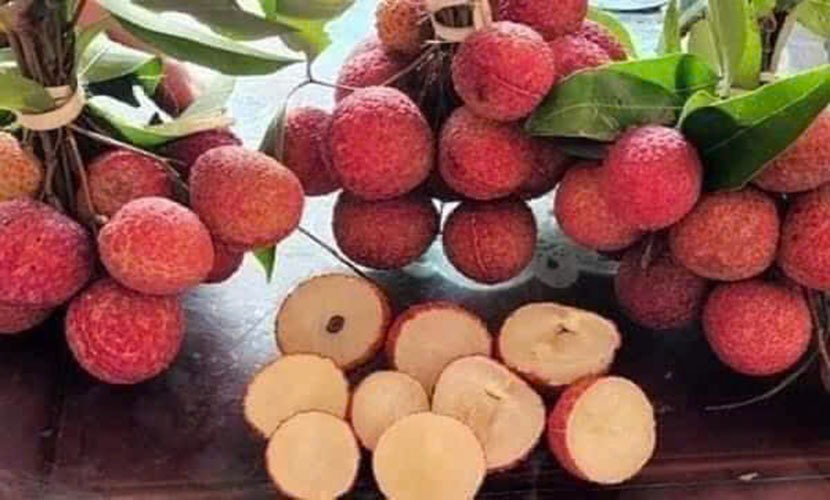
Vietnamese lychee
In addition, fruits such as pomelo, passion fruit, star apple, custard apple, and rambutan are making their way into the Thai market and receiving positive feedback.
According to Ms. An, director of a Vietnamese fruit export company, Thailand has recently made it onto the “golden list” for many exporters. Thai consumers are increasingly fond of fresh fruits and vegetables from Vietnam, as the taste suits their preferences.
“In the past few years, sales to the Thai market have been going very well. Many Thai companies have been importing Vietnamese lychee to sell in major supermarket chains. Also, they imported raw agricultural products for processing,” Ms. An added. “A 40% increase in our company’s revenue over the past six months has largely come from this market.”
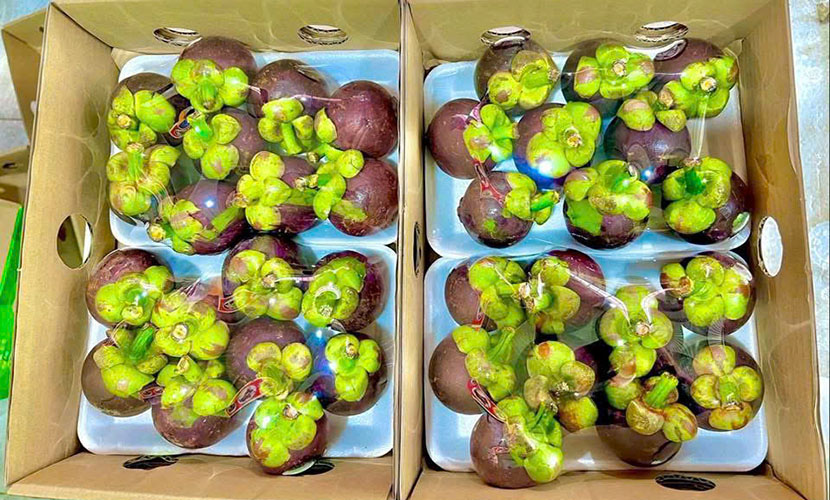
Vietnamese rambutan
Not only fruits and vegetables, but products such as seafood, rice, cashew nuts, coffee, and pepper are attractive Thai consumers. This presents a great opportunity for Vietnamese agricultural exporters to explore and capture a potential market valued at billions of US dollars.
Thailand has granted import permits for four types of Vietnamese seeds and crops. They are bell pepper seeds, eggplant, potatoes, and corn.
Previously, five types of fruit had been granted import permits: white-fleshed dragon fruit, red-fleshed dragon fruit, lychee, longan, and mango. Currently, Thailand is showing interest in rambutan, mango, poultry, and poultry eggs from Vietnam.
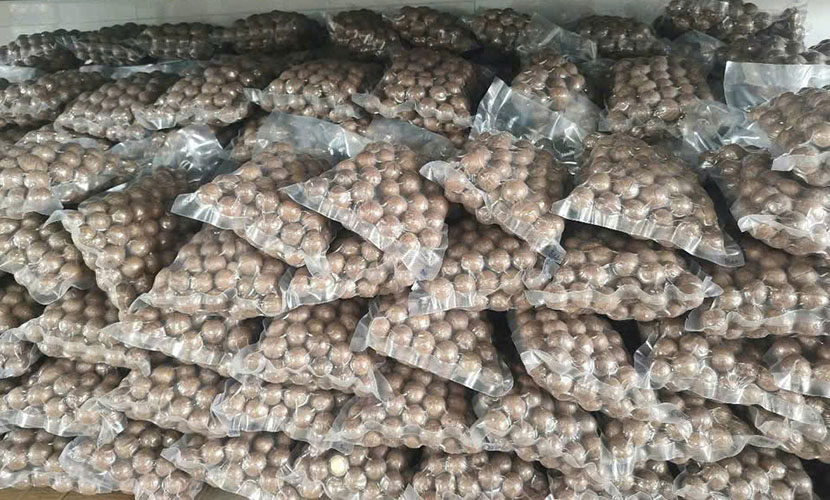
Vietnamese macadamia
Mr. Hien, a member of the Vietnam Food Association, believes that the first priority is to improve product quality. Because having good products is the primary “victory” to make a strong impression in any market, not just Thailand.
Mr. Hien said, “For example, with rice, Vietnamese rice is attractive Thai consumers because it suits their taste. This means we have done well in ensuring the quality of Vietnamese rice. Additionally, product packaging should be attractive. Therefore, consumers who look at the packaging, can recognize it as Vietnamese goods.”
According to an expert, there are more and more free trade agreements. Accordingly, import tariffs are reduced. Therefore, to protect their domestic industries, importing markets always apply technical barriers.
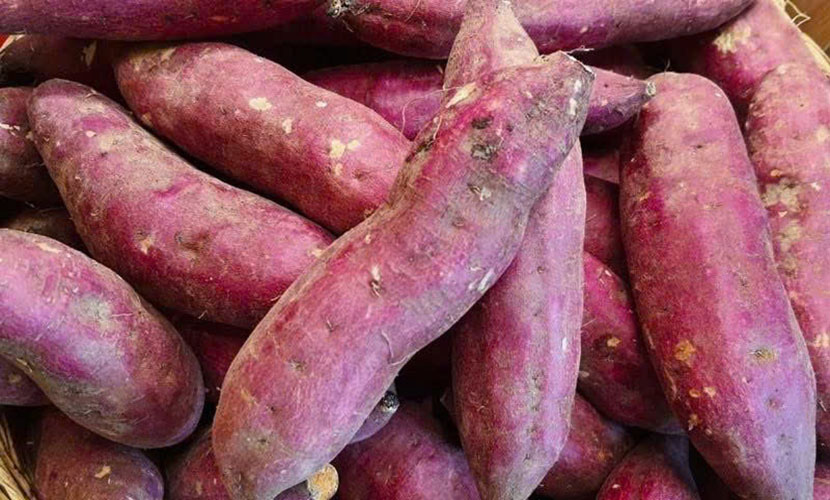
Vietnamese sweet potatoes
“Vietnamese producers must prioritize quality. Also, Vietnamese agricultural exporters need to update import regulations to respond promptly and effectively,” the expert emphasized.
Additionally, the government should strengthen trade promotion activities and developing export markets through strategies that connect supply chains is also a solution to capture more markets.
Vietnamese source: https://tuoitre.vn/vi-sao-thai-lan-tang-mua-nong-san-viet-20240908085234569.htm
